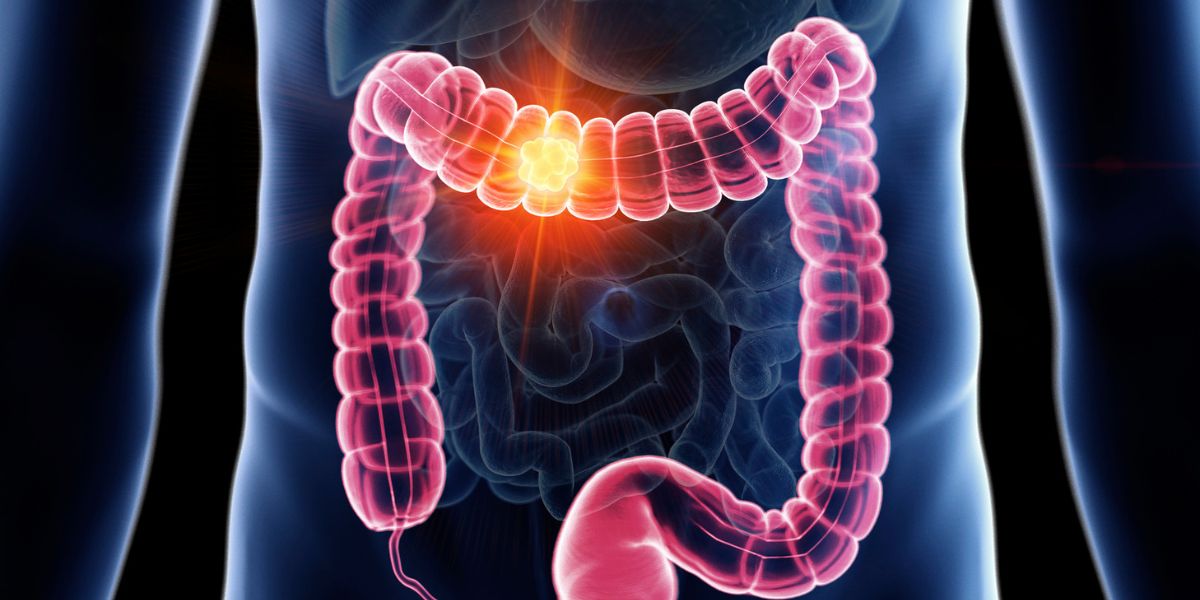Bowel cancer, also known as colon cancer or colorectal cancer, is the third most common form of cancer.
Bowel cancer is linked with dietary factors and obesity, and people with type 2 diabetes have been found to have a higher chance of developing it.
Colon cancer is most commonly diagnosed in older people, as the risks increase with age.
What is bowel cancer?
The colon is the large intestine, which is the last part of the digestive system, ending at the rectum.
Colon cancer occurs when cells of the glands in the colon start to grow uncontrolled, and therefore tumours develop.
If untreated, the cancer will grow into the muscle wall of the colon and can spread to neighbouring organs.
Risks of developing bowel cancer
The risk of developing bowel cancer is increased for people who:
- Have a related bowel condition – such as Crohn’s disease or ulcerative colitis
- Have a close relative with bowel cancer
- Smoke
- Regularly eat processed meats
- Regularly drink alcohol
- Are overweight
The risk of bowel cancer also increases with age.
Bowel cancer and type 2 diabetes
People with type 2 diabetes have also been shown to be at a greater risk of developing bowel cancer, although the reasons why are not yet understood well enough to say why.
A large-scale research study published in 2011 indicated that people with type 2 diabetes had a 38% higher risk of colon cancer than those without diabetes.
While a 2018 study published in the British Journal of Cancer found a greater incidence of colon cancer in men with type 2 diabetes than women also with the condition. The researchers behind the study suggested that the difference in sexes might be due to women having a higher degree of glucose control than men.
Symptoms of bowel cancer
The earliest stages of bowel cancer present no symptoms, so people are strongly encouraged to respond to colon cancer screenings.
The sooner bowel cancer can be spotted, the easier it is to treat and the less chance it has to spread to neighbouring parts of the body.
The NHS identifies three main symptoms of bowel cancer:
- Persistent blood in your stools – this can happen for no apparent reason, with blood appearing as dark or bright red
- A persistent change in bowel habits – you might have to go to the toilet more often, or your stools may become more runny.
- Persistent lower abdominal pain, bloating or discomfort – usually after eating.
Other symptoms can include weight loss and fatigue.
Bleeding in the bowel can cause anaemia, which in turn can lead to persistent tiredness.
While these symptoms can indicate something other than bowel cancer, you must make an appointment with your GP if you have exhibited any of the above for three weeks or more.

Diagnosis of bowel cancer
Diagnosis of colon cancer involves your doctor feeling your abdomen for signs of the cancer. Your doctor will perform a rectal examination which will involve putting on a rubber glove and feeling inside your rectum.
This is normal procedure so don’t be too alarmed by the method of diagnosis.
Further tests may be needed such as sigmoidoscopy or colonoscopy, which examine the colon in more detail, to confirm the presence of cancer.
Stages of bowel (colon) cancer
Colon cancer will often be graded into stages, which helps to define the extent of treatment that is needed.
- Stage 1:if the cancer has not spread beyond the lining of the colon
- Stage 2: if the cancer has developed into the muscular layer around the colon
- Stage 3: if the cancer has developed into the lymph nodes
- Stage 4: if the cancer has spread into other organs of the body – advanced colon cancer
Treatment of bowel cancer
Treatment for colon cancer will depend on how far advanced the cancer is.
If the cancer is in stage 1, the cancer will often be treated with surgery alone to remove the cancer.
If the cancer is in stage 2 or 3, surgery can remove the cancer and chemotherapy will likely be given to prevent the cancer returning.
If in stage 4, the cancer cannot be eliminated but it may be possible to control the cancer using one of more of the following treatment options:
- Surgery – to physically remove the cancers
- Chemotherapy – medicines used to kill cancerous cells
- Radiotherapy – radiation in the form of high energy x-rays used to kill cancer cells
- Monoclonal antibody therapy – laboratory made antibodies which can target cancer cells and prevent them from spreading
Prevention of bowel cancer
Red meats and, in particular, processed meats have been linked with increased risks of colon cancer and so the department of Health advises people to consume less than 70g (cooked weight) of red or processed meat.
Taking regular exercise and losing weight may also help to decrease your risk of developing colon cancer.
A 2022 study found that physical activity reduced the risk of bowel cancer by 20 percent, in comparison to those with as sedentary lifestyle.
The NHS will soon be offering screening checks for bowel cancer to everyone aged over 50, while screenings are already available for anyone over 60 years old.







